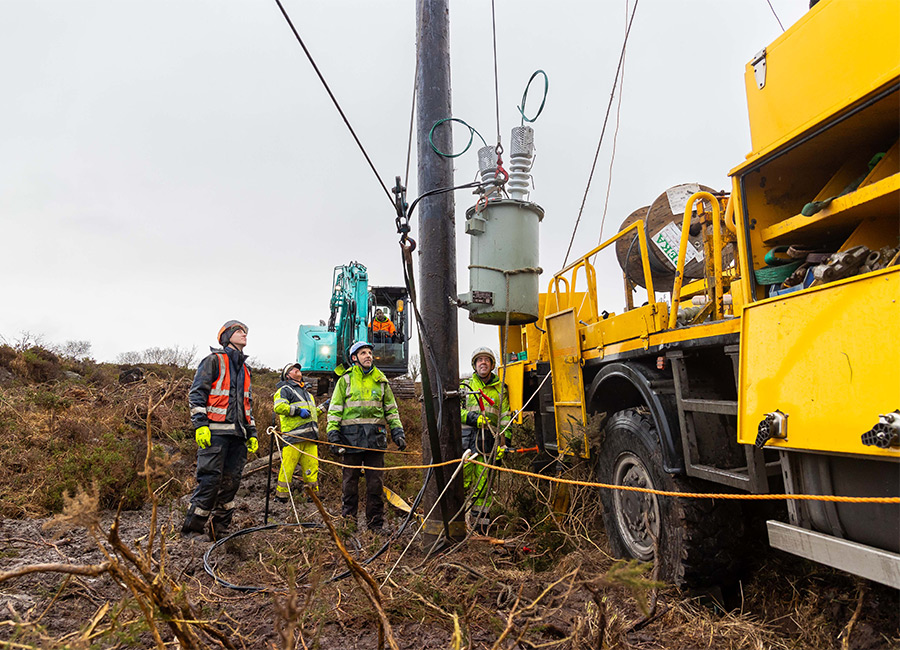Electricity prices may need to be increased as a result of the devastating Storm Éowyn, the ESB has warned.
ESB chief Paddy Hayes said the severe weather event will most likely have knock-on effects for customers' pockets next year.
The news comes as more than 25,000 customers remained without power yesterday, 11 days after the storm on January 24.
Over 1,600 payments have already been made under the Government's Humanitarian Assistance Scheme. The average payment per claim is currently coming in at just under €200.
Hayes said that the full assessment of costs for customers will be looked at next year.
"It's likely that those charges which are allowed there will find their way back into the overall cost of our distribution network," he told RTÉ's Today with Claire Byrne.
"There is a cost associated by this that will be borne across the electricity network as a whole. It is a devastating and destructive storm, the likes of which we have never seen before."
A report from Eurostat last October revealed Irish consumers are already paying the highest electricity prices in the EU, with bills typically €500 higher than the EU average.
Hayes said that those affected by the storm are not entitled to the company's "charter payments" as this does not apply to weather events.
He explained: "We have a scheme at the moment, a charter payment scheme, where in the normal turn of events if customers are out because of an issue with the network, there are some charter payments.
"That doesn't apply to storms. The Government has stepped forward and provided a Humanitarian Assistance Scheme (HAS) for customers who are out of power and have been impacted by that. I think that that is the appropriate way to do it."
Asked why the repairs are taking so long, Hayes said this is down to the "unprecedented" level of damage caused by the storm. He added: "I understand the frustration for people when our estimated restoration times move. This was a weather event that we haven't experienced before in Ireland.
"In fact, we're seeing two or three times as much damage to our network as we've ever seen in storms like Storm Ophelia or Storm Darwin in the past.
"And it's that extent of damage, particularly in some of the areas which are more remote from the network, that's caused the time taken to restore power.
"Electricity runs from the larger areas of the grid into the more remote areas. It's absolutely critical to get the large backbone lines back first because that can feed everybody and feed the maximum numbers.
"In some cases, as we're getting to the numbers, where you've got people fed off smaller parts of the grid, we can find more damage that hasn't previously been discovered until we restored parts of the backbone. And that's why the date moves."
Social Protection Minister Dara Calleary outlined the support available under the HAS for those still impacted by Storm Éowyn.
On Tuesday, Calleary said: "Unfortunately, some people continue to be without power and water in the aftermath of Storm Éowyn. My department is supporting those most impacted with vital humanitarian aid to assist with essential food, heating and accommodation needs."
Meanwhile, the effects of the storm are being felt on the nation's broadband systems.
Clare Fine Gael TD Joe Cooney criticised what he described as "unacceptable delays and poor customer engagement" by providers in restoring fibre broadband services since Storm Éowyn.
Cooney said some customers across the country have remained without fixed broadband services since January 24, "which is causing significant disruption for small businesses and people who work remotely."

He added that the lengthy disruption to services raises the requirement for significant investment in Ireland's rural broadband infrastructure to "future-proof" it against future storms.
"The delay in restoring services is further compounded by National Broadband Ireland being caught off-guard without having adequate plans and contractors in place to respond to the network outages."
(Pic: James Connolly)











